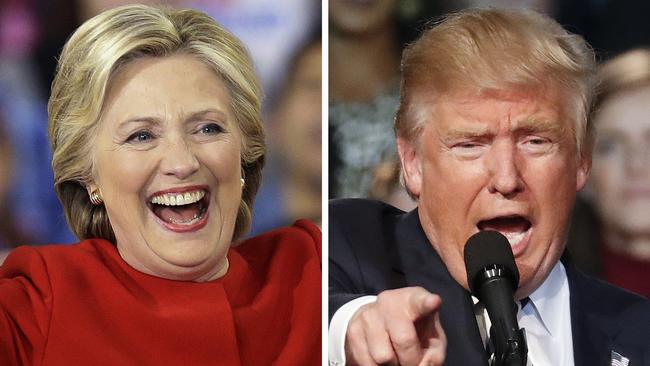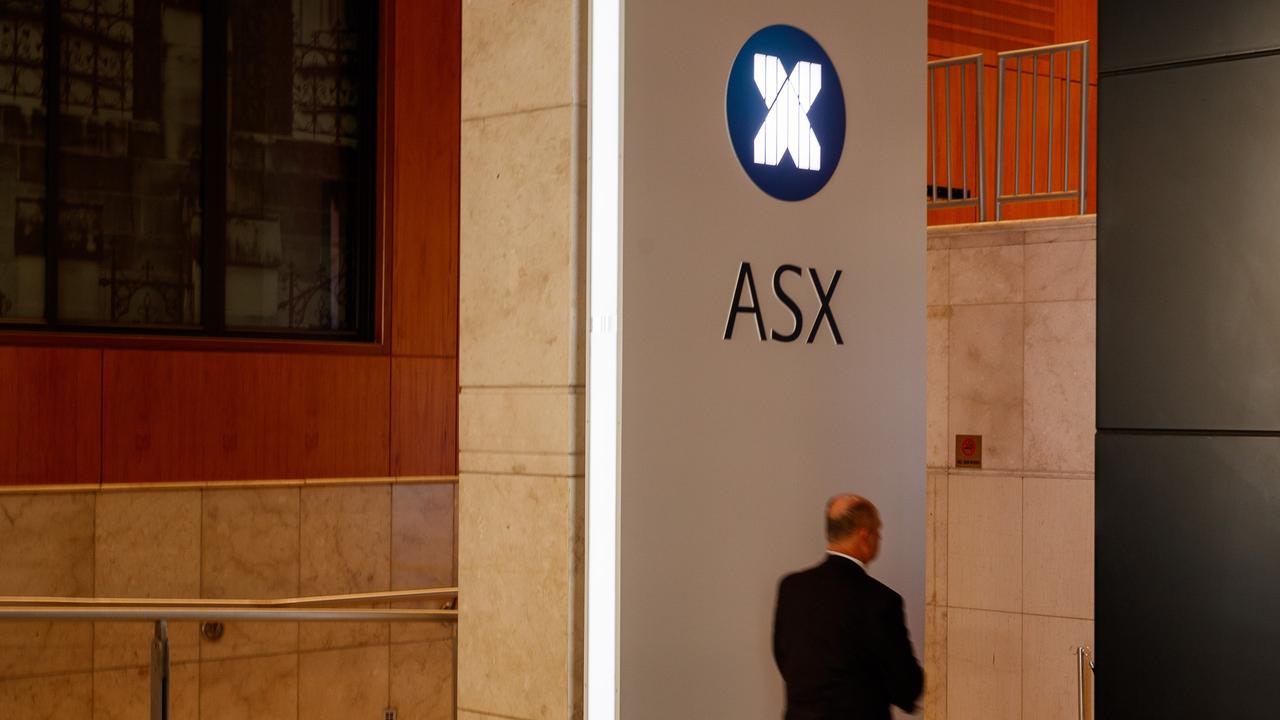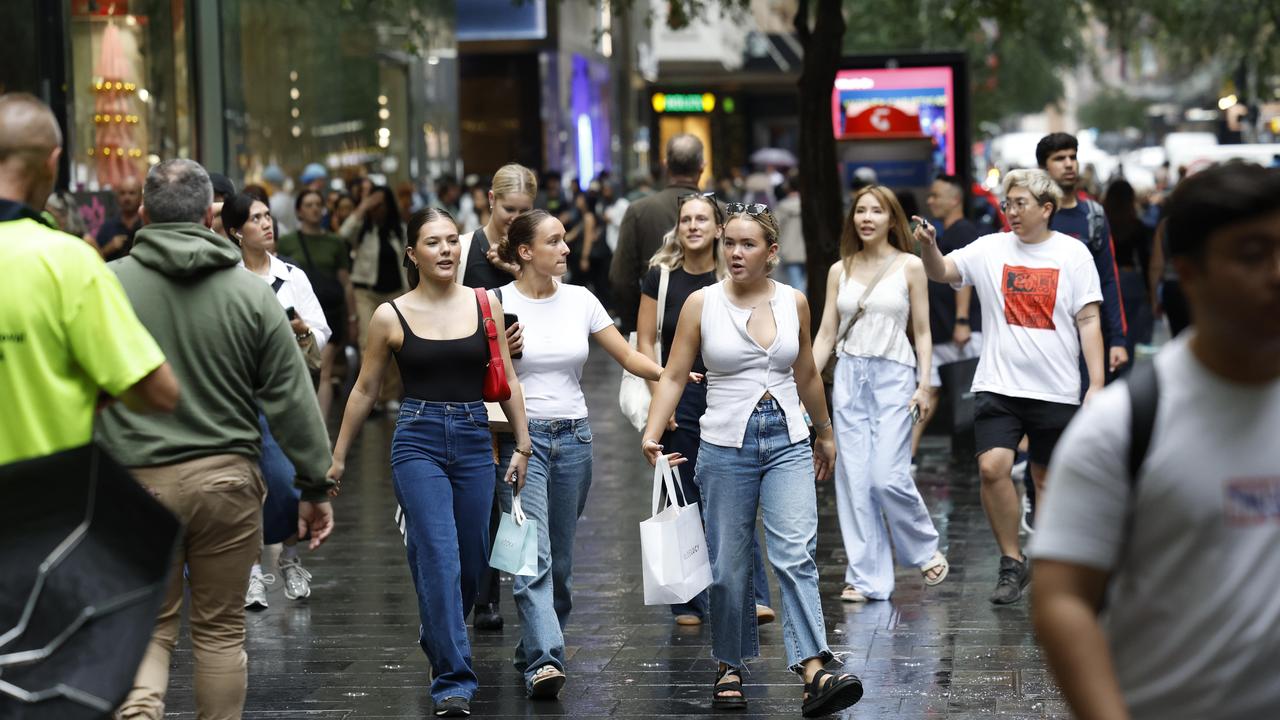Clinton presidency better for Australia: economists
Australia’s interests would be much better served by the election of Hillary Clinton than Donald Trump, say economists.

Much as we might like to have a say in the US election, its not Australia’s call.
But there are plenty of people trying to understand what the result means for our economy and among economists, the view is almost unanimous: Australia’s interests would be much better served by the election of Hillary Clinton than Donald Trump.
A poll of members of the Monash-ESA forum — comprising some of Australia’s prominent economists, academics and business people — came down 83 per cent in favour of the statement that Ms Clinton was a “superior US presidential candidate for the Australian economy and for Australia”.
A joint initiative between Monash University’s Business School and the Economic Society of Australia, the forum found little support for Mr Trump, even among the few who disagreed with the proposition.
“Much as Trump-bashing is all the rage at the moment, I just don’t think the outcome of the US elections matters that much to Australia or its economy,’’ says Paul Frijters, professor of economics at the University of Queensland, who disagreed with the statement.
“Both candidates will be our ally if elected. What is happening in China is far more important to us on all counts (trade, tourists, students, capital flight).
“I can’t see much effect of either Trump or Clinton on US-Australia trade. So the difference would have to come from far-fetched scenarios, such as the likelihood of costly wars begun by the winner, and I on balance don’t think Trump is more likely than Clinton to drag us into costly wars that we should not be in.’’
Another Queenslander and dissenter, Michael Knox, who is chief economist and director of strategy at Morgans Financial, notes that both candidates have rejected the Trans Pacific Partnership that would affect global trade. But the Republican economic agenda expands the US budget deficit from 3.3 per cent of gross domestic product to 4.5 per cent, versus 3.5 per cent for the Democrats.
“Hence the Republican budget provides more stimulus to world trade and hence the Australian economy,’’ Mr Knox says.
And cutting corporate tax from 35 per cent to 15 per cent should increase after tax earnings by 23 per cent and increase US private fixed capital investment both in the US and in Australia.
Even consulting economist Rana Roy, who provided the most detailed response in dissent, said his response was dictated by the likelihood that Ms Clinton would be weakened by her own baggage and obstructive Republicans making the most of polls showing the majority of Americans believe she acted “illegally” and/or “unethically” and is not “honest and trustworthy”.
“In consequence, there is a serious risk of a re-run of the Richard Nixon Presidency à la 1973-1974 and, with it, a resulting policy paralysis across the key economic portfolios, including international economic relations — just at a time when bold policy responses are required to meet the mounting economic challenges facing American and global society,’’ Dr Roy says.
He agrees with the US Nobel Laureates who identify Mr Trump’s proposals on trade, immigration, tax cuts and debt default as serious risks to the global economy.
“Thus, irrespective of who wins the presidential election, I believe the result of the election will deliver a worse economic outcome for the US and for the world, including especially trade-intensive economies such as Australia, in the years immediately ahead of us.’’
“What matters is that we are likely heading for choppy waters and need to plan accordingly.’’
Still, the majority view in Ms Clinton’s favour wasn’t uniformly enthusiastic.
Former Reserve Bank board member Warwick McKibbin, said “superior” was the key word.
“She may not be a good president for Australia’s interests especially if the Democrats in the Congress swing her even further to the left, particularly in damaging trade policy and further threatening the fragile global economy.’’
Monash economics professor Stephen King said: “I only agree (with the proposition) because the alternative is so awful.
“If the Republicans had put up a half-decent candidate then they would be a shoe-in by now.
“Will Clinton be ‘good’ for Australia? Probably not given her campaign rhetoric. Will she be better than Trump? That is a low bar to hurdle!’’
His colleague at Monash Business School, Lisa Cameron, is more succinct. “Donald Trump is a dangerous, unpredictable egomaniac who knows very little about public policy.”
Professor Cameron adds: “I am sick of reading that both presidential candidates are weak candidates and seriously flawed. Hillary Clinton is one of the most experienced candidates to run for office. You need not agree with all of her policies but she is super-smart, driven and has accomplished a great deal.”
Some optimism from the dismal science, after all.





